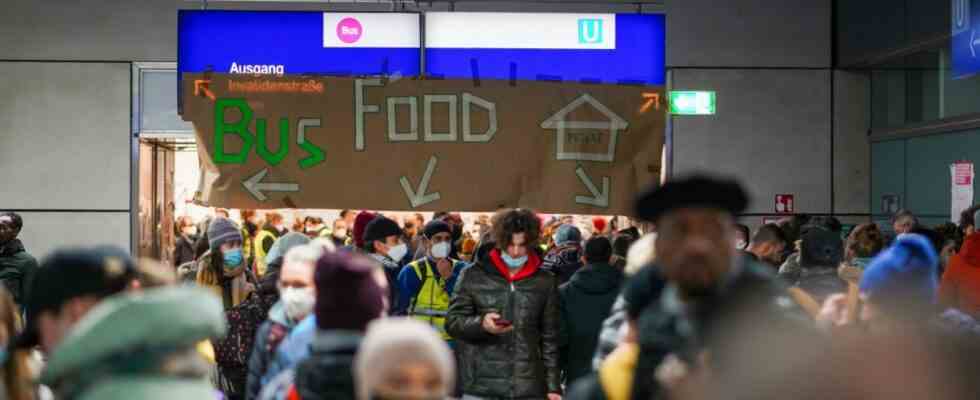It’s getting cramped in the refugee shelters. 2022 is likely to be the year in which even more people came than in the refugee summer of 2015: Berlin alone took in more than 80,000 people despite the bitter housing shortage – as many people as live in Constance. Bayern swallowed Passau about once with 58,000. No wonder, then, that the federal states are groaning. They can. So far, this crisis has been dealt with relatively quietly.
However, a perfidious distinction has now been made by Bavaria’s Minister of the Interior, Joachim Herrmann. The problem is not “primarily” the influx of Ukrainian war refugees, but “that we have been struggling with a significant increase in the number of asylum seekers for some time.” What was meant were those seeking protection, above all from countries such as Syria, Afghanistan, Iraq and Turkey.
Good refugees, bad refugees: the minister is cementing a distinction that should be taboo. Yes, Ukrainians sometimes do less work for the authorities. Even seven months after the start of the war, many of them find private accommodation. Thousands are learning German and have registered to look for work. Better still, when the attacks on Kyiv subsided, they returned home in droves.
But you can do it too. On the other hand, language courses have so far only been granted to asylum seekers if they have good prospects of staying or only after the successful completion of their months, sometimes years of procedures. They have to serve up to 18 months in anchor centers far away from society, and some of the children here remain unschooled for the first six months. In Bavaria, asylum seekers with poor prospects sometimes have to stay in these fenced-in barracks even if the wife and child are German.
Germany can influence how well refugees arrive here
Germany cannot influence who seeks refuge here. However, institutional structures do influence how these people can develop here and how society views them. While the old federal government under Interior Minister Horst Seehofer recently degraded asylum seekers through numerous hardships, it seems as if the Ukrainians now have a kind of honorary status thanks to the mass influx directive activated by the EU. They only get the chance to live a normal life here.
They don’t live separately, they send their children to school, and the job center suggests jobs. That helps them, but also German society in dealing with them: prejudices disappear the closer we let strangers get to us. And integration is all the better the sooner the newcomers have contact with mainstream society. Mass accommodation far away from the municipalities make arrival almost impossible.
Instead of polemicizing against the smaller group of asylum seekers, Joachim Herrmann and his colleagues should also be able to improve their situation – and thus their acceptance among the population. The traffic light has already agreed language courses for everyone in the coalition agreement; hopefully the anchor center model will also come to an end. It’s not about niceties, it’s about future social cohesion, because many Syrians, Afghans, Iraqis and Turks will also stay with us. And the protective idea of the right to asylum continues to apply regardless of origin.

